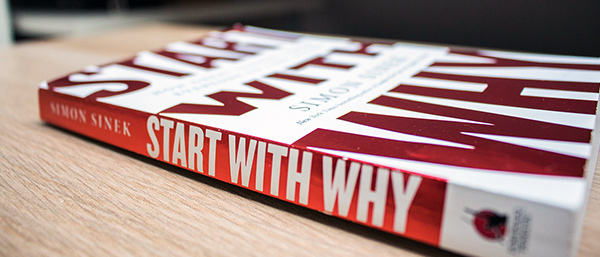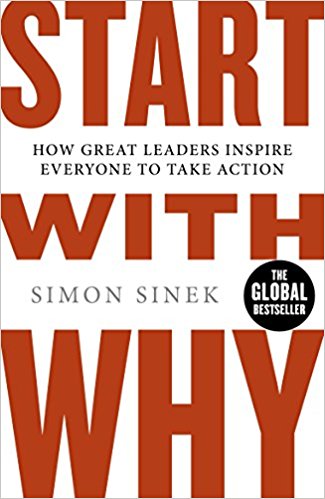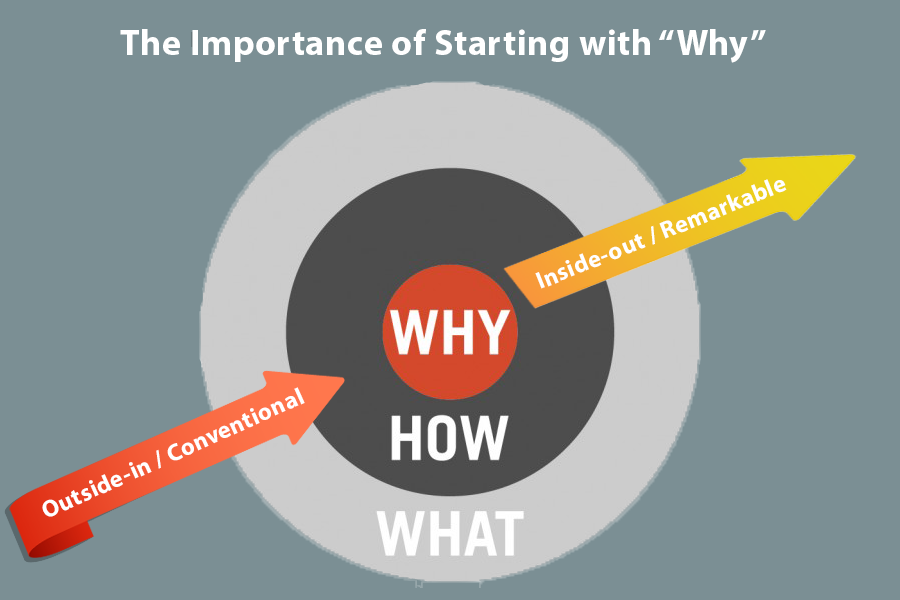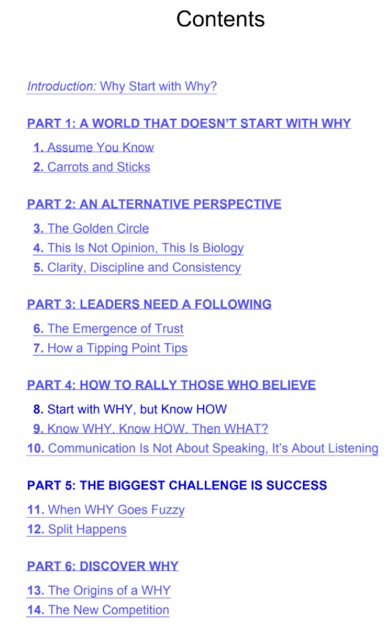Business Book Review: ‘Start with Why: How great leaders inspire everyone to take action’ by Simon Sinek
19/06/2018

Summarised by Keith Thompson
Introduction
[su_row][su_column size=”2/3″]Why do you do what you do? This is the key question Simon Sinek asks in his bestselling book. In this book, Sinek addresses what many leaders and managers within organisations I think are missing. “Start with Why” addresses what is essentially an organisation’s purpose, why does it exist, what need does it fulfil or what problem does it solve?
Sinek talks about great people such as Martin Luther King, Steve Jobs and the Wright brothers in trying to discover what, in a range of disparate people, made then so successful, innovative and influential.
Sinek became famous or infamous through a 20-minute TED Talk (video below) on the same subject. The TED Talk essentially covers the content of the book. However, the book has many more examples and stories such as Sam Walton of Walmart, Herb Kellerman of South West Airlines and Bill Gates of Microsoft. At the expense of becoming repetitive, all these examples drive home his key point – Start with Why.
[/su_column] [su_column size=”1/3″] [/su_column][/su_row]
[su_youtube url=”https://youtu.be/hGn1xcZc9yA”]
[/su_column][/su_row]
[su_youtube url=”https://youtu.be/hGn1xcZc9yA”]
The initial parts of the book maintain a remarkable similarity to the TED talk, but the examples in the latter portion show how great leaders change the face of their companies by focusing on “Why”.
Sinek introduces a tool that he has developed called the Golden Circle. This tool effectively centres around Purpose or Why. The Golden Circle is an alternative way of looking at Mission Command / Centralised Intent – subjects of some of our recent blogs.
[su_row][su_column size=”1/2″] The tool can work two ways.Most organisations probably know “What” they do. In parts of those organisations some will know “How” they do it. But very few people in these organisations will know “Why” they do it. So you can eventually get to Why through starting with What and then How.
[/su_column] [su_column size=”1/2″]
Used the other, and arguably more powerful, way we start with Why we are going to do something. When we know Why, we can then go on to develop How we do something and once we know How we will know What to do maintaining a clear line sight to the Purpose or Why.
[su_youtube url=”https://youtu.be/Wb8KpHqU5tg”]Consisting of 14 chapters, in six effective parts, it is very easy to read in a day or over the weekend. Following on from his book Sinek has written two further books – the second, on a similar theme, entitled “Find your Why” and his third entitled “Leaders Eat Last”

Categories & Tags:
Leave a comment on this post:
You might also like…
Inside the Air Transport Management MSc: Classes, assignments, and group project work
What’s it really like to study Air Transport Management at Cranfield? Adit walks us through a typical day, assignment expectations, and the excitement of hands-on group projects. This is the second of three blog ...
Using Factiva to research a company
If you’re tasked with researching a company, your first port of call might be to search Fame or EBSCO Business Source Complete. Your immediate reaction might not be to look at Factiva. However, for larger ...
How do I write a secondary reference … in the NLM style?
Secondary referencing is used when you’re reading a work which includes a quotation from another author, and you – the researcher – can’t obtain the original source. We always advise, where possible, to try to ...
Reaching new heights: How a Global Excellence Scholarship fuelled my aerospace dreams
Leaving my home in India to pursue an MSc in Aerospace Dynamics at Cranfield University was a leap of faith. Hi, I’m Oliza Kachroo and as an international student, the transition ...
How do I reference…when delivering a presentation?
Just as you cite and reference sources in written work, you should also acknowledge the sources you use or quote in oral presentations. Citing your sources in presentations provides your audience with information about the ...
How do I reference a blog post… in the NLM style?
Whilst blog posts do not fall into the scholarly material category, they can be useful for providing personal insights into a particular area. For example, there may be a high-profile member of an industry who ...





